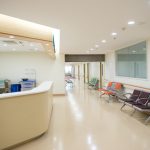 Healthcare facilities are places where people come seeking care and healing. Patients, staff, and visitors all rely on these establishments to provide them with a safe and secure environment. Unfortunately, with the rise in violence and security threats in recent years, it has become crucial for healthcare facilities to prioritize safety and security measures. One of the key strategies in achieving this is through the hiring of security personnel. In this blog post, we will discuss the importance of hiring security personnel and provide a guide to enhancing safety and security at healthcare facilities.
Healthcare facilities are places where people come seeking care and healing. Patients, staff, and visitors all rely on these establishments to provide them with a safe and secure environment. Unfortunately, with the rise in violence and security threats in recent years, it has become crucial for healthcare facilities to prioritize safety and security measures. One of the key strategies in achieving this is through the hiring of security personnel. In this blog post, we will discuss the importance of hiring security personnel and provide a guide to enhancing safety and security at healthcare facilities.
1. Understanding the Importance of Security Personnel
Healthcare facilities deal with a wide range of people, some of whom may be volatile or aggressive. Security personnel play a vital role in ensuring the safety and well-being of everyone present. They can quickly respond to incidents, de-escalate potentially dangerous situations, and maintain order. Their presence alone acts as a deterrent to potential threats. Overall, security personnel help create a secure atmosphere, allowing staff to focus on providing care without worrying about their safety.
2. Evaluating Security Needs
The first step in enhancing safety and security at a healthcare facility is evaluating its unique needs. This involves identifying the potential security risks, vulnerabilities, and existing weaknesses. Conducting a comprehensive risk assessment can help determine the appropriate security measures required. It is important to involve security experts who specialize in the healthcare sector during this evaluation process. They can provide valuable insights and recommend solutions tailored to the specific facility.
3. Designing a Security Plan
Based on the evaluation, a security plan should be developed. This plan should outline the specific security measures to be implemented, including the deployment of security personnel. Hiring a professional security firm with experience in healthcare security is highly recommended. They can work with the facility’s management to design a comprehensive security plan that addresses specific risks, such as theft, violence, or unauthorized access. The security plan should also include protocols for emergency situations, such as natural disasters or active shooter incidents.
4. Recruitment and Training of Security Personnel
Once the security plan is established, the next step is hiring and training the security personnel. It is vital to ensure that security personnel possess the necessary qualifications, including proper licensing and certifications. Strong communication and conflict resolution skills are also essential in healthcare settings. Investing in additional training specific to the healthcare industry, including HIPAA and patient confidentiality, is recommended. By equipping security personnel with the right knowledge and skills, they can effectively carry out their duties and enhance safety and security at the facility.
5. Collaborating with Healthcare Staff
Security personnel should work closely with healthcare staff to create a culture of safety and security. Building relationships and effective communication channels between security personnel and staff will foster a collaborative approach to maintaining safety. Regular meetings and training sessions can facilitate the exchange of information, ensuring that security measures are consistently updated to address evolving threats. It is also important to involve healthcare staff in providing feedback and suggestions for improving security protocols and procedures.
6. Utilizing Technology
In addition to physical security measures provided by security personnel, incorporating technology can enhance safety at healthcare facilities. Access control systems, surveillance cameras, and alarm systems can significantly improve security by monitoring access points and deterring potential threats. Security personnel should be trained to operate and utilize these technologies effectively. Furthermore, regular maintenance and upgrades should be conducted to ensure their reliability.
7. Learning from Incidents
Lastly, healthcare facilities should establish a system of continuous improvement by learning from past security incidents. Conducting thorough investigations after each security breach, near miss, or any other incident is critical. Identifying the root causes and implementing corrective measures will help in preventing future occurrences. Regular security audits and drills should also be conducted to test the effectiveness of security protocols and identify areas for improvement.
Summary
Enhancing safety and security at healthcare facilities is of utmost importance in today’s world. Hiring security personnel is a crucial component of any comprehensive security plan. By evaluating security needs, designing a security plan, recruiting and training the right personnel, collaborating with healthcare staff, utilizing technology, and continuously learning from incidents, healthcare facilities can create a secure environment for patients, staff, and visitors. Prioritizing safety and security not only protects all individuals involved but also ensures that healthcare facilities can continue to provide the highest quality care to those in need.
Need a Security Guard Company in Lake Havasu City, AZ?
Since 2009 Mohave Security LHC has believed that we provide security you can count on. We pride ourselves in being a family owned and operated security service. We can provide security services such as guards and patrols to events, gated communities, city buildings, construction sites, mines, and many more locations. Those services are available 24/7/365 days a year. There is nothing too small or too big for us. We can provide both armed and unarmed guards to meet your individual needs. Contact us today to learn more about what we can do for you!